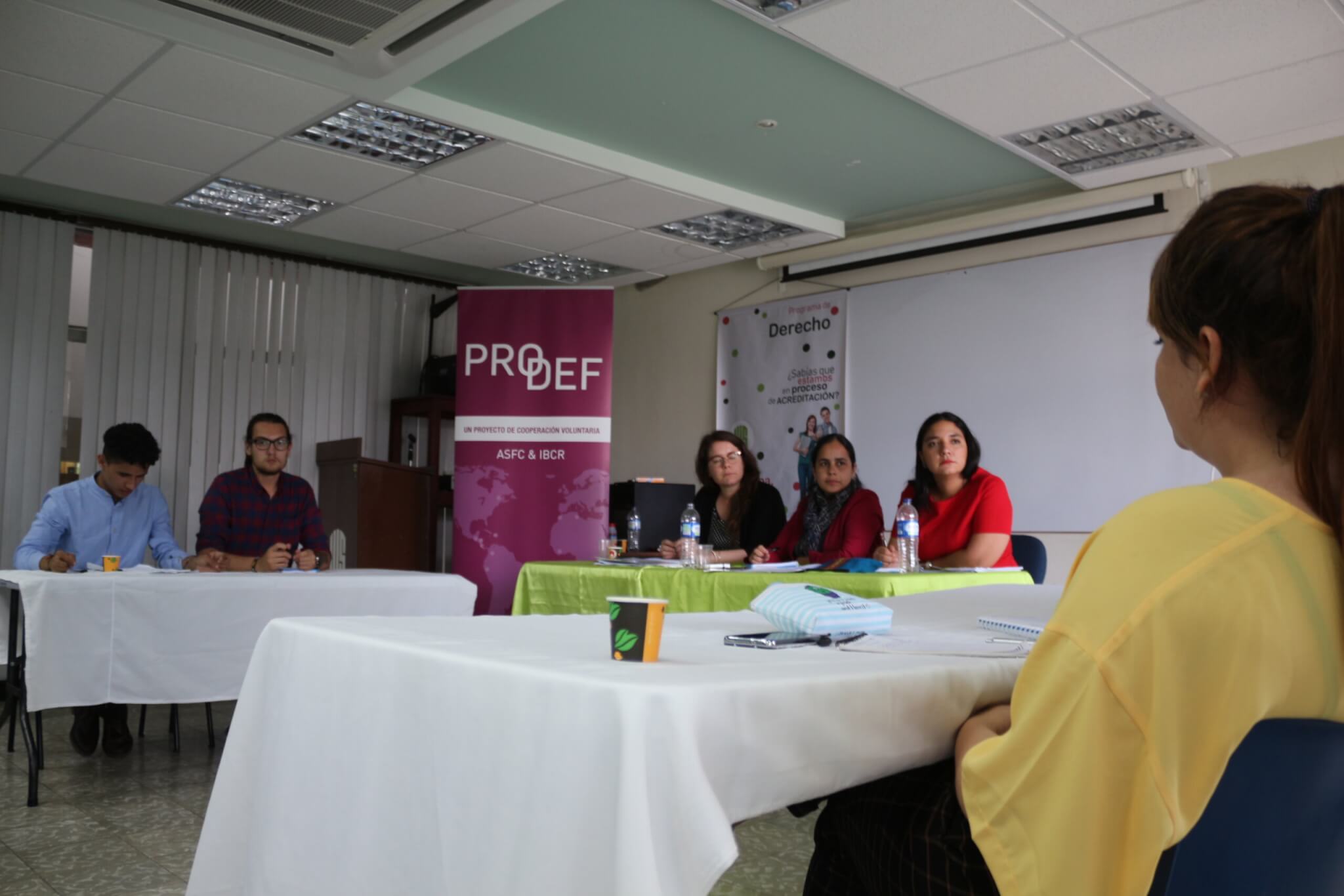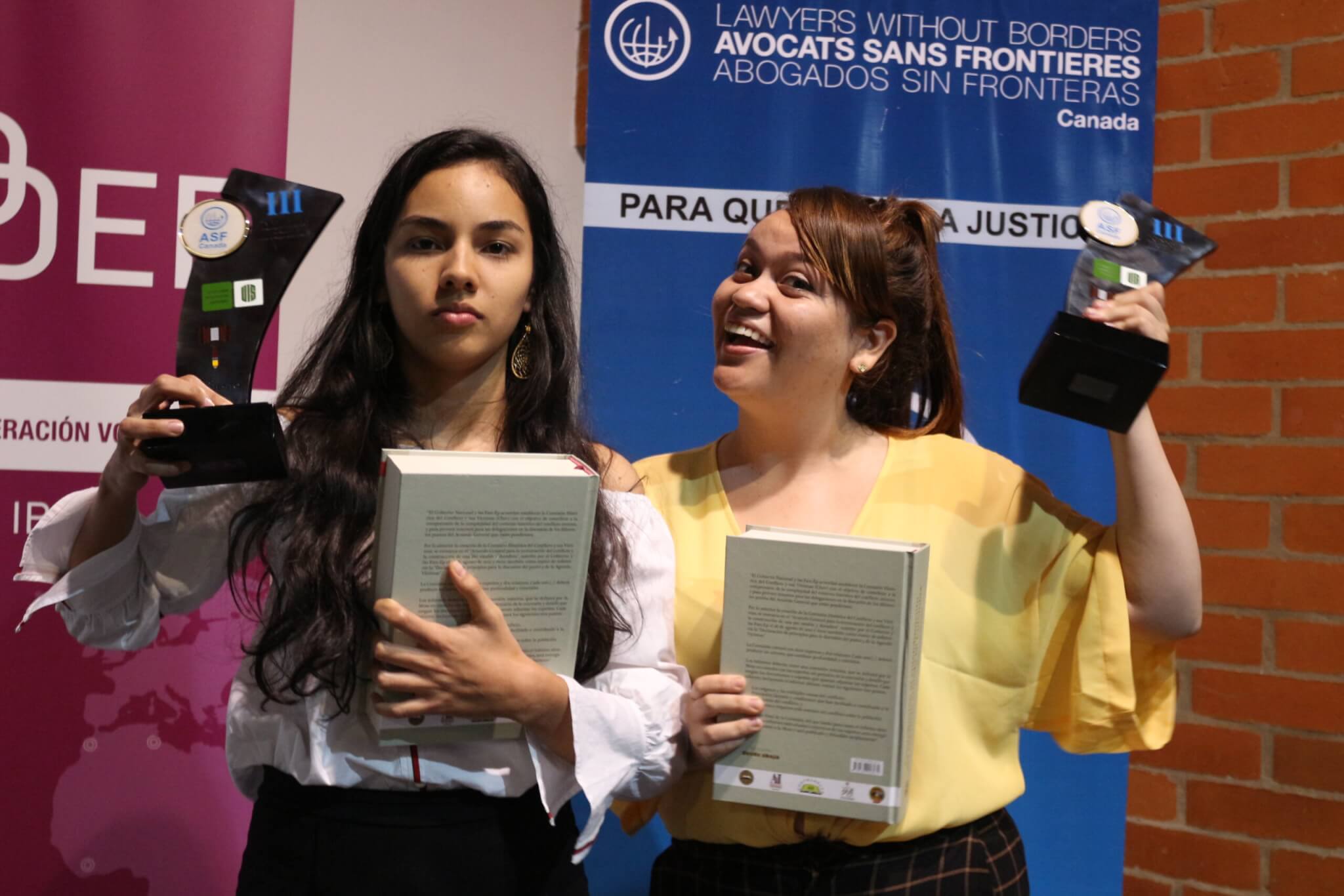And the winner is…: This year’s Interuniversity Competition in International Criminal Law comes to an end
- Blogs
18 June 2019

Ivan Skafar
Volunteer legal advisor
The third Interuniversity Competition in International Criminal Law (ICL Competition) organized by Lawyers Without Borders Canada (LWBC) in collaboration with the Universidad Industrial de Santander (UIS) and with the support of Equipo Juridico Pueblos (EJP) came to a close last Friday.
In the months of April and May, close to 100 students from 7 different universities in the Bucaramanga (Santander) region participated in multiple workshops and discussion sessions that prepared them for a selection exam from which 16 finalists from the following universities ultimately emerged: UIS, Universidad Cooperativa de Colombia, Corporación Universitaria de Ciencia y Desarrollo, and Universidad Santo Tomas.
The finalists were divided into teams of two and were given additional training in litigation, public speaking and stress management to prepare them for the final stage of the ICL Competition: the oral debate. Each team was assigned a position in favor or against the jurisdiction of the International Criminal Court (ICC) with respect to a hypothetical case.
A day of debates
On June 14, 2019, the finalists came head to head in front of our panel of expert judges, which included Gloria Silva Tovar, a human rights lawyer in Colombia, Alexandra Sandoval Mantilla, a magistrate with the Special Jurisdiction for Peace, and Elise Hansbury, LWBC’s training and human rights laboratory coordinator.
The first round consisted of four debates, each between two teams. The four best teams, as selected by the judges, moved on to the second round, two of which ultimately made it to the final.
The final round was a hard-fought battle between the two winning teams composed of Juan David Serrano Gómez and Jaider Johan Tapias Torres on the one hand, and of María Alejandra Rey Hernández and María Victoria Jaimes Becerra on the other. The judges challenged them by asking them very specific questions regarding their arguments.
As a whole, the legal arguments developed by all of the teams demonstrated great sophistication and preparation, which made the judges’ task a very difficult one.

Awards and closing ceremony
The debates were topped off with a closing ceremony that took place in the evening. Each of the finalists received a plaque highlighting their participation in the final phase of the ICL Competition, and the winning teams received trophies, copies of the book ‘Contribución al entendimiento del conflicto armado en Colombia’, as well as a gift certificates for Panamericana, a popular bookstore in Colombia which has a great selection of legal material. Finally, the rest of the evening allowed all of the finalists to relax, socialize and enjoy a traditional Colombian drumming band.
Mission accomplished
The ICL Competition sought to raise awareness among law students in the Bucaramanga region regarding the specific needs of victims of serious human rights violations, particularly the rights of the different vulnerable groups present in Colombian society. It also sought to strengthen the theoretical and practical knowledge of students regarding international legal mechanisms, specifically with respect to the International Criminal Court and its role in the context of transitional justice in Colombia, and to promote dialogue and exchange between students from different universities in the Bucaramanga region. In these regards, the ICL Competition was a great success.
It was obvious throughout the entire ICL Competition that the students were highly motivated to learn about the different topics presented, but also that they had the desire to go out and apply the acquired knowledge in Colombian society and make a difference. This type of drive is exactly what LWBC is looking to promote in order to assure a peaceful future in Colombia and around the world.
About the author
Ivan Skafar is a volunteer legal advisor with the “Protection of children, women and other vulnerable communities” project implemented by Lawyers Without Borders Canada and the International Bureau for Children’s Rights as part of the volunteer cooperation program funded by Global Affairs Canada. The project focuses on improving the protection of the rights of children, women, and marginalized communities as well as on strengthening democracy and the rule of law through access to justice.